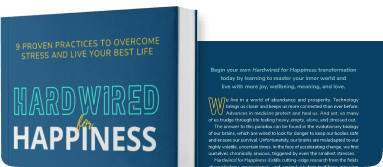Three Cases for Building Eudaimonic Organizations

MORAL FOUNDATION
Fundamental enablers of employees being treated with dignity and fairness.
The Reality
One in three workers around the world do not earn a living wage. In Canada, 50% of nonprofit workers suffer from food insecurity—they can’t afford groceries despite doing deeply meaningful work. Teachers, nurses, international aid workers, and countless others doing eudaimonic work often lack the basic conditions of decency: freedom, equity, security, and dignity.
Why It Matters for People Leaders
As Andrew Soren puts it: “The business of business should be the betterment of humanity in the world.” Organizations, especially large enterprises, function like societies within society. They educate, insure, protect, and shape the daily experience of millions. That scale comes with accountability.
The purpose of organizations, rooted in Aristotelian thinking, should be to create the maximum possibility for eudaimonia at the individual level. Without decent work as the foundation, what the International Labour Organization defines as freedom, equity, security, and dignity—people aren’t performing, they’re surviving. You can’t build flourishing on a foundation of fear, scarcity, or silence.
As Andrew said, think of it like a boat: decent work conditions are the hull. If that hull is filled with holes, your team will spend all their energy bailing water. They’ll never have the capacity to actually go somewhere meaningful.
Actionable Steps
- Conduct a decent work audit: Assess whether team members earn a living wage, feel secure in their roles, have freedom to voice concerns, and are treated with dignity
- Set up a “Voice → Action” loop: Send a 2-question weekly pulse (What’s getting in your way? One change that would help?), commit to one change per sprint, and post a simple “You said → We did” update each month
- Acknowledge every input within 48 hours: Even if you can’t act immediately, let people know they’ve been heard
- Make dignity non-negotiable: Publicly address any behavior that undermines dignity, equity, or psychological safety
- Review compensation against living wage standards: Don’t just meet minimum requirements—ensure people can actually afford groceries and secure housing
COMPETITIVE ADVANTAGE
Flourishing cultures attract and retain top talent, foster loyalty, and create enduring value.

The Reality
In a fierce talent market, high performers won’t trade their well-being for a paycheck. Your brand and employee experience must signal dignity and growth, or top candidates will optimize away from you. The whole B-Corp movement and conscious capitalism lens demonstrate that buyers increasingly want to support organizations that foster well-being of both people and planet.
Why It Matters for People Leaders
People want to work for organizations where they believe they can experience well-being. As Andrew notes, this isn’t just about talent acquisition, it’s about sustainable competitive positioning in the market. Organizations that create conditions for flourishing become talent magnets because they offer something money alone can’t buy: the opportunity to bring your best self to work and reach your full potential.
The competitive case extends beyond talent. Customers, partners, and investors increasingly evaluate organizations through an environmental, social, and governance (ESG) lens. The social component, how you treat your people, is material to long-term value creation and brand strength.
Actionable Steps
- Make flourishing part of your employer brand: Share real stories of how people grow and find meaning in their work, not just perks and benefits
- Build “positive deviance” visibility: Identify and celebrate leaders within your organization who exemplify eudaimonic leadership—those who help others grow, stand up for dignity, and act with virtue
- Create role-crafting opportunities: Allow 10-20% of time for people to focus on problems they care about that align with business outcomes
- Measure and report flourishing metrics: Track and share data on learning velocity, psychological safety, inclusion, and mobility with the same seriousness as revenue metrics
- Review talent retention through a well-being lens: Exit interviews should explore whether people left due to lack of growth, meaning, or decent work conditions
- Tie leadership compensation to people metrics: Include improvements in safety, learning velocity, mobility, and inclusion as part of performance evaluation
PRODUCTIVITY PEAK
When people flourish, performance follows – innovation, energy, and results follow.

The Reality
Secure, fairly treated people who feel safe and valued are more focused, more creative, and more consistent. They’re present. They solve problems earlier. Absenteeism drops. Quality improves. The cost of turnover and rework declines. Workers who can afford to eat, who aren’t worried about job security, and who feel they can exercise their voice will simply be more effective on the job.
Why It Matters for People Leaders
The productivity case is straightforward but often overlooked: if you want the most productive workers, you need decent work conditions to be true. You want people to be innovative, present, engaged, and effective, not spending their mental energy worrying about survival.
Beyond baseline productivity, flourishing teams “get better at getting better.” Growth isn’t an annual training event; it’s threaded through the work. Teams that trust each other can disagree, decide, and deliver faster. People who see the human outcome of their effort do exceptional work.
As Andrew emphasizes: “You can just show care. You can help someone know that they are valued and valuable. You can foster growth, create psychological safe spaces. These are fundamentally human traits, what it means to be eudaimonic. You’re basically just trying to be a good human being with the people that are your direct reports.”
Actionable Steps
- Start projects with purpose clarity: Begin with a one-paragraph “who we’re serving and what changes for them” brief. Revisit it at every milestone
- End sprints with impact stories: Share one real story – a person helped, a problem prevented, a customer insight unlocked
- Create psychological safety rituals: Open meetings with a 60-second “best help needed” round so asking for support becomes normal
- Offer micro-coaching weekly: Give one specific, strength-anchored note per person (behavior → effect → repeat)
- Reward collective behaviors publicly: Recognize knowledge sharing, mentoring, and cross-functional handoffs, not just individual heroics
- Build participation into decision-making: Give people voice and choice in how decisions get made through structured feedback loops
- Implement recognition programs: Ensure people know they matter and are valued through consistent, meaningful acknowledgment
- Integrate growth into the talent lifecycle: Make development opportunities visible and accessible throughout someone’s journey, not just at annual reviews
- Measure what matters: Track flourishing indicators (purpose clarity, psychological safety, growth opportunities) at team, function, and BU levels alongside performance metrics
The Journey Forward
As Andrew reminds us: “I think that what our job is in general in this kind of context is to look for positive deviance wherever we are.” You don’t need permission to be a eudaimonic leader. You can choose to show up with care, infuse meaning in conversations, create psychological safety, and build more inclusive workplaces.
The question isn’t whether your organization can afford to invest in flourishing. It’s whether you can afford not to.
The people who do exceptional work—who solve hard problems, who stay through uncertainty, who bring others along ,aren’t looking for the easiest path. They’re looking for one that’s worth taking.
Learn more about Andrew on Linkedin.
Listen to the podcast with Ashish and Andrew below. You can also listen on Apple Podcasts.
Access and subscribe to all of the episodes of the Flourishing Edge Podcast here.
Make Flourishing Your Competitive Edge.


